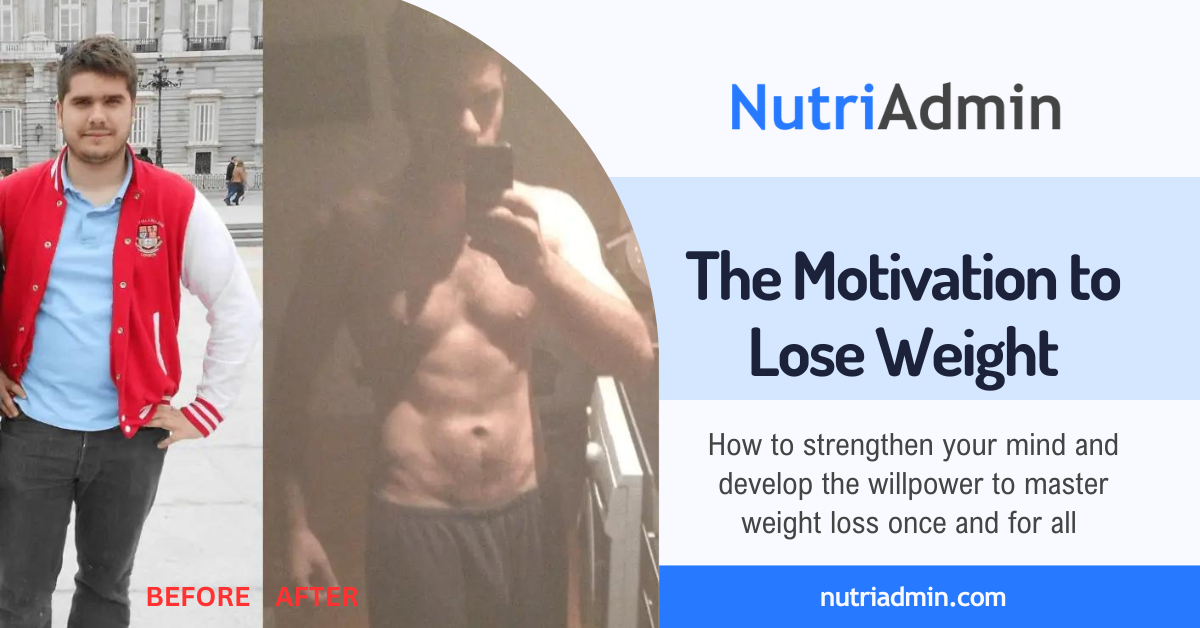Want to know how to stick to a diet mentally? This article describes the psychology of weight loss and willpower. This is based on my own experience mastering mind and body for weight loss, as well as books and research. In this article I will try to persuade you that you can build the motivation to lose weight.
Let’s start with an experience I had back in 2012…
I was panting heavily, struggling to catch my breath. It had only been a brief walk and a single flight of stairs. Shouldn’t exercise make you feel good? My chest burned with pain, leaving me gasping for air. I collapsed on the couch. All the time wondering, is it normal to feel this terrible at 20 years old?
But the pain did not stop there. Oh no. The little voice in my head – never quiet – started whispering. The cravings started kicking in, the insatiable hunger. The uncontrollable urge for junk food. Too tired to move, I had to order a takeaway home.
Let’s see… A large pizza, with fries, dips, chicken wings, and garlic bread? Sounds reasonable (why do they call it a family pack when I can eat it in one sitting?) Let’s also add an ice cream (or three) and some coke to wash it down. Wait, 30 minutes delivery time??!! I can’t wait that long, I’ll eat a cookie whilst I wait (proceeds to eat the entire bag of cookies).
Sounds familiar? If you have ever experienced something like the above, then you know the physical pain of exercise IS NOTHING compared to the pain inside. The negative self-talk, the shame, the guilt, the frustration.
I knew eating all that junk food was not good for me. I kept thinking: Why can’t I stop myself from eating this junk? When will things change? How to stick to a diet mentally? Why don’t I have the motivation to lose weight?
That was the day I hit rock bottom. I shudder when I remember that day. Back then, at 110 kg (242 lbs) and 178 cm (5′ 10”) height, I was at 34.7 on the BMI scale. A healthy weight should be under 25 BMI, so I wasn’t doing well at all.
Just about two years later, I would be down to 75 kg, with 6-pack abs. Miraculously, I would be fit enough to row with my team at Cambridge University. This coming from someone that was struggling to climb a flight of stairs a year earlier. Not only that, I’ve been fit for the last 10 years, the weight hasn’t come back.
Want to learn how I mastered the motivation to lose weight? and the discipline to stay healthy?
In this article, I’ll guide you through the psychology and neuroscience of willpower. My goal is to help you achieve weight loss and other goals. Stick around for a personal habit tracking template download at the end.
- Why should you listen to me?
- Who is this guide for?
- The problem: Obesity & Diabetes
- Motivation and willpower for weight loss
- Dopamine and motivation to lose weight
- Neuroscience insights on the motivation to lose weight
- The virtuous and vicious circle of discipline
- Gaining motivation to lose weight: Practical tips
- Conclusion on the motivation to lose weight
- Frequently asked questions
Why should you listen to me?
A bit more background in my personal story. For context, I lost around 35 Kg in two years, with the bulk of the weight loss happening in just one year. And yes. That’s me in the cover picture above. I got there once I learnt how to stick to a diet mentally.
You can see my weight progression below. I gained all my weight as I started university. Before then I was at a healthy – if close to the upper limit – weight.
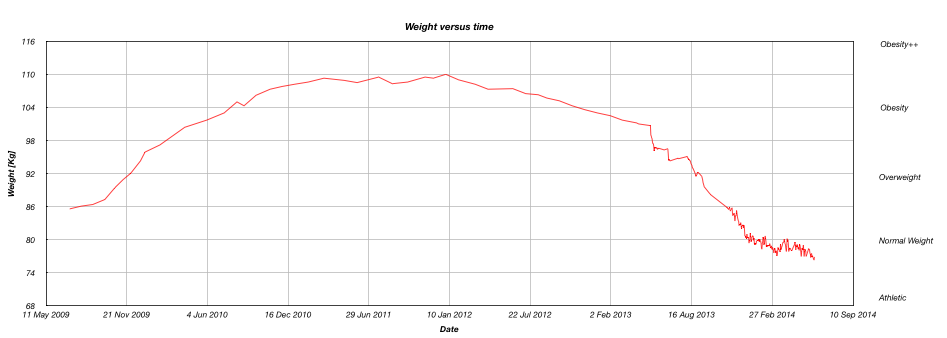
So I’ve been there, but there is more I can bring to the table on the topic of the motivation for weight loss.
I practice what I preach on motivation for weight loss
Here are a few short facts about me:
- I was 110 kg and went down to 75kg within two years once I mastered my mind.
- Have been fit for 10 years, proving that this method works, at least for me. Will share more resources on why I think it can work for others too.
- I am not claiming to be an expert in neuroscience. That being said, I have read over a hundred books over the years on psychology, habit formation, discipline, nutrition, fitness, willpower, and the mind.
- I personally practice everything mentioned in this article. I have been perfecting the power of my mind for 10 years. Building the habits in this article has strengthened my willpower.
I had to learn about nutrition, and do exercise too of course. You cannot lose weight just with the mind. That being said, often the emphasis is to eat healthy and exercise more. Which is incomplete. You need to know how to stick to a diet mentally as well.
You rarely hear, “oh, by the way, you also have to develop your willpower and discipline with healthy habits so that you are able to stick to eating healthy and exercise more“.
This article will hopefully introduce you to the third piece of the puzzle of weight loss: the mind. Pieces number 1 and 2 are nutrition and exercise of course.
I work with thousands of nutrition and fitness professionals
I co-founded NutriAdmin in 2016. NutriAdmin provides software for nutritionists and meal planning software that coaches and personal trainers use with their clients.
For the last 8 years I have been working in bringing software tools to nutrition, fitness, and wellness professionals. I have talked with thousands of these professionals over the years, hearing about what they need for work.
A key concern I hear often is that it’s hard to motivate clients to lose weight. Alternatively, the same is often phrased as the challenge of helping others stick to a diet mentally. You may know how to make a meal plan effectively, which is good. But is having the perfect meal plan enough if clients don’t follow it?
Working with all these nutrition and fitness professionals gives me access to a lot of relevant background. I have combined what I hear at work with my own personal experience and knowledge. I will be referencing some books and research as well to back up my claims in this article.
Who is this guide for?
This guide is tailored for anyone seeking motivation to lose weight. Are you interested in the psychology of weight loss? Want more weight loss willpower? Curious about the interplay of mind and body in weight loss? This guide is for you.
The guide is also for you if you work helping others with their weight loss journey. Here at NutriAdmin we make software for coaches, and software for personal trainers. Speaking to our users we know that motivating clients to make lifestyle changes is crucial.
For professionals in the nutrition and fitness industry, consider sharing this guide with clients. This can be a powerful way to help your clients cultivate the motivation, willpower, and discipline for weight loss needed to transform their lives.
Empower yourself and others to make the leap from dreaming to achieving, with proven strategies grounded in psychology and neuroscience. I will show you sound practices with examples from my own personal experience on how to stick to a diet mentally.
I am not unique, anyone can find the motivation to lose weight
Anyone can lose weight… IF they believe they can, IF they commit to making a change, IF they learn what foods to eat and how to incorporate them into a routine, IF they prioritize making a lasting change.
I am hardly the only person to ever achieve permanent weight loss. So you know getting fit is possible. Still, for many stuck at a high weight, the dream of slimming down may seem unachievable. How to stick to a diet mentally is not clear at all.
My personal transformation may appear unbelievable to some. Yet, the journey from there to here wasn’t paved with magic or instant success. It was a gradual process enabled by small, consistent changes and a renewed self-worth.
Curious about How did I turn things around? How did I muster the motivation to lose weight? The key isn’t in quick fixes, miracle foods, or tricks, but in understanding and using motivation and habit psychology. Stick around, and I’ll reveal strategies that not only altered my body but shifted my life perspective.
The transformation I achieved isn’t just for me. Anyone can make a big change in their life with the right approach. This guide emphasizes that with the right mindset, tools, and motivation, you can conquer obstacles to weight loss or any goal.
Choose your pain: weight loss willpower
Some of you may be groaning now. What, discipline? gradual progress, willpower, lifestyle changes? None of that sounds like fun! Can’t I get the motivation to lose weight in an easier way?
At this juncture, it is crucial to realize you’re faced with a choice between two types of pain. On one side, there’s the temporary discomfort of discipline and altering deep-seated habits. This encompasses engaging in activities you might initially resist such as regular exercise, relinquishing certain favorite foods, and making sacrifices that seem tough in the moment.
On the opposite end lies the prolonged pain – accompanied by the myriad health disadvantages – of bearing extra weight and leading an unhealthy lifestyle. These aren’t just abstract woes; they translate into real issues. Examples include increased risk of chronic diseases, diminished quality of life, and emotional distress.
The question then becomes, which pain are you willing to endure? The former, though challenging, carries the promise of growth and transformation. The latter, however, is a pathway to potential regret and further hardships.
I’ve gone through the pain of changing my habits and becoming healthier. It was tough, but my life has dramatically improved since then. Sacrifices had to be made, but it has been worth it.
Which choice will you make?
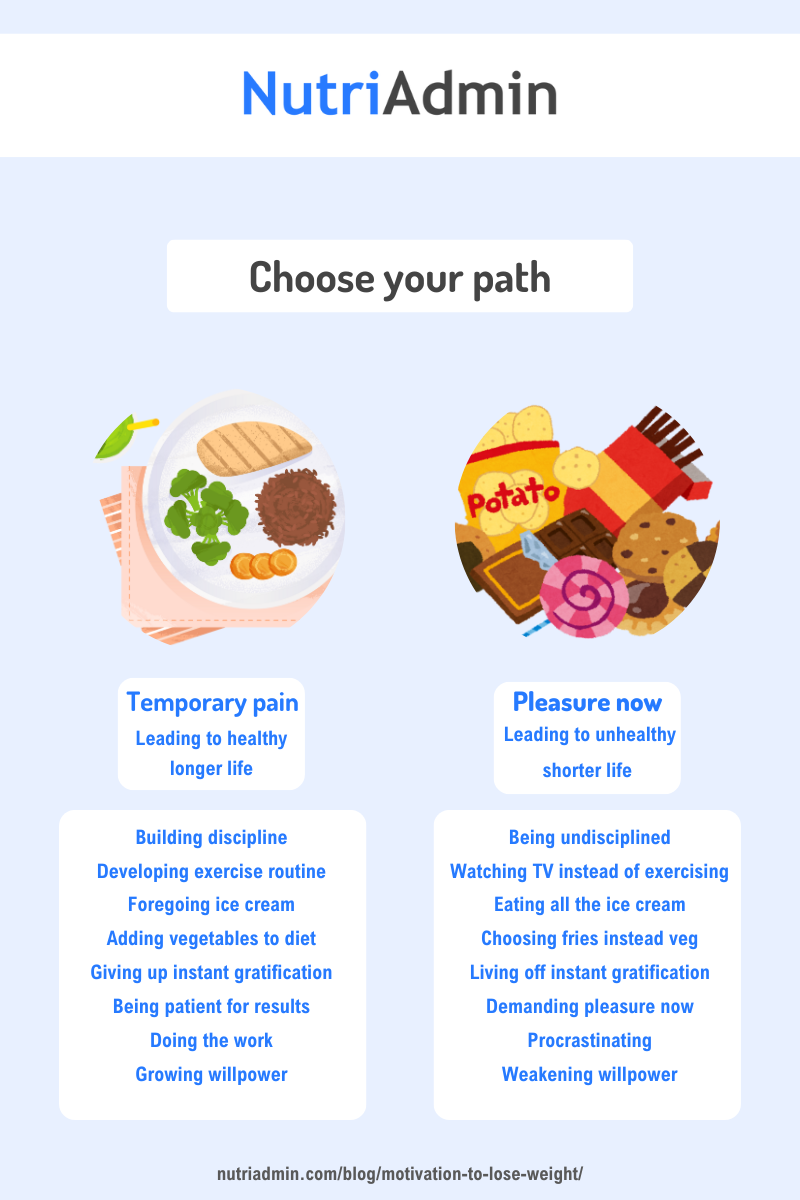
Growth vs fixed mindset with regards to weight loss willpower
A growth mindset is the belief that skills, intelligence, and talents can be developed through dedication, hard work, and guidance.
Individuals with a growth mindset see challenges as opportunities for growth and are more likely to persevere through difficulties. They view effort as a pathway to mastery and learn from criticism to improve themselves.
Conversely, a fixed mindset is the belief that abilities are innate and immutable. People with a fixed mindset often avoid challenges, fearing failure or judgment. A fixed mindset leads to giving up easily when faced with obstacles. People in this camp see effort as fruitless if talent isn’t obvious and tend to ignore constructive feedback.
Understanding these mindsets is crucial because they influence how people approach their goals, respond to setbacks, and ultimately, how they achieve success. For instance, to learn how to stick to a diet mentally you will need to adapt and have a growth mindset.
In the context of the psychology of weight loss, results may vary. Changes may be more dramatic or more modest depending on individual circumstances. We all have different bodies, health, and environments.
That being said, I truly believe everyone can improve. If you don’t believe that, then save yourself the time and skip this article. Or jump to the comments section and write something cynical. This is not for people with a fixed mindset; you need a growth mindset to improve.
You can use your inner strength to make lasting changes for significant results! If you coach others, you have the power to influence them and guide them to success!
Why finding the motivation to lose weight is worth it
Why bother losing weight? If you are at an unhealthy weight, or coaching a client who needs to lose weight, I want you to take a minute to close your eyes and imagine yourself at your optimal weight.
Just imagine the myriad benefits that accompany being at a healthy weight. I can attest to how valuable all the below have been for myself personally.
Longer lifespan
Firstly, statistics and studies consistently highlight the potential for an increased lifespan. Simply put, you will likely live longer with a healthy weight.
Being within a healthy weight range diminishes the risks associated with heart diseases, diabetes, and several forms of cancer. Thereby contributing to a longer and healthier life.
Though I can’t tell you for sure (I haven’t died yet), it’s likely I’ll live longer. It’s no secret that healthier habits lead to longer lives.
More energy
Beyond longevity, there’s the tangible boost in energy levels. Excess weight can put a strain on your body, making everyday tasks feel more exhausting.
Achieving a healthier weight can result in feeling more vibrant and energetic. This can empower you to engage in activities you love, or discover new passions without feeling held back.
The amount of energy I have these days versus 10 years ago is incomparable. I get much more done at work, can go out more, meet with friends, and engage in active pursuits.
Tellingly, I’ve gone from 6 hours a day on the couch to perhaps just 1. I’m always doing something, and I feel I have the energy to do what I want. This all became possible once I mastered how to stick to a diet mentally, without giving up at the first obstacle.
Increased confidence
Furthermore, achieving a healthy weight often leads to increased confidence. This surge in self-esteem stems not just from societal perceptions but from personal accomplishments. This will be linked to the positive body image one develops.
Such confidence can open doors in both personal and professional spheres.
In my own experience, loads of things that used to scare me (talking to certain people, possible rejection, people’s opinions of me) no longer do. I feel much more confident, and so can you!
Enhanced attractiveness
Equally important is the aspect of attractiveness. While beauty standards vary and are deeply personal, many find that reaching a weight they’re comfortable with enhances how attractive they feel and are perceived by others.
Without going too much into my romantic life, let’s just say my love life is much better now. Relationships, and how attractive women find me has improved dramatically. I’ve been very happy with my love life ever since I lost all that weight.
Enriched experiences
Finding the motivation to lose weight and being at a healthier weight expands your ability to do more things.
Whether it’s hiking up a mountain, playing sports with friends, or simply enjoying a leisurely walk without undue strain, the physical capabilities gained from losing excess weight can enrich your life in countless ways.
When I was struggling with my weight, often I couldn’t join my friends in hikes or other outdoor activities. I used to feel ashamed, and I would make up excuses. Truth is, I just couldn’t keep up physically.
This is no longer the case. Now I can do pretty much anything I want, and my body complies happily.
Mastery of self-control and discipline
Lastly, there’s a profound sense of control that comes with achieving a healthier weight. This control is not just over one’s body but extends to other areas.
Mastering the habits, choices, and discipline that contribute to a healthier lifestyle will yield the motivation to lose weight. But not only that, self-mastery brings long-term fulfillment intrinsically as well.
This sense of mastery and control can be incredibly empowering. It fosters a mindset that is prepared to tackle any challenges life may throw your way.
In my own experience, this has been life changing. It’s a virtuous circle. Developing self-control will lead to weight loss, and weight loss will increase your self-control. Over time, other challenges in life melt away. Combining mind and body for weight loss has loads of positive side effects.
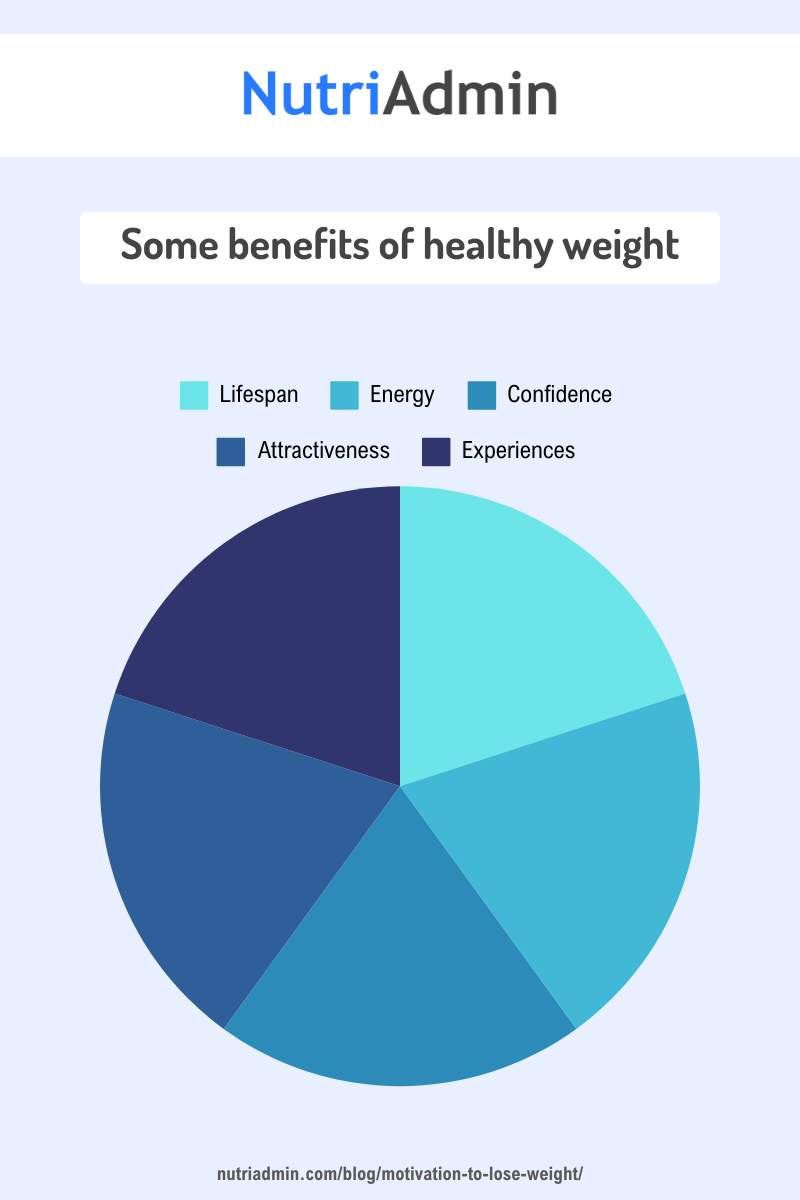
So now we know the benefits (and there are many more). Let’s address the problem.
The problem: Obesity & Diabetes
The problem of obesity and diabetes is not merely a health issue. Unfortunately, this is a growing epidemic that is skyrocketing across the globe.
An alarming number of individuals are expressing the desire to slim down, yet struggling to get the motivation to lose weight. Many find themselves trapped in a vicious cycle that seems almost insurmountable.
Not only that, the challenge of weight loss willpower is exacerbated in most western countries where we live in what can be described as an obesogenic environment.
Such environments are characterized by a pervasive presence of junk food marketing. We are bombarded with advertisements and incentives for unhealthy foods and sedentary habits.
Have you noticed the fast food outlets on every corner? Ready-to-eat high calorie meals? and a culture that often prioritizes convenience over nutritional value? Unfortunately these have become the norm.
This relentless exposure contributes to the rising rates of obesity and diabetes. Under these circumstances, the task of adopting a healthier lifestyle seems like an uphill battle. How to stick to a diet mentally when all around us are surrounded by temptations?
To top things off, it’s not just the individual cost. There is a societal cost as well. Estimates of the medical cost of adult obesity in the United States range from $147 billion to nearly $210 billion per year. This is a massive problem!
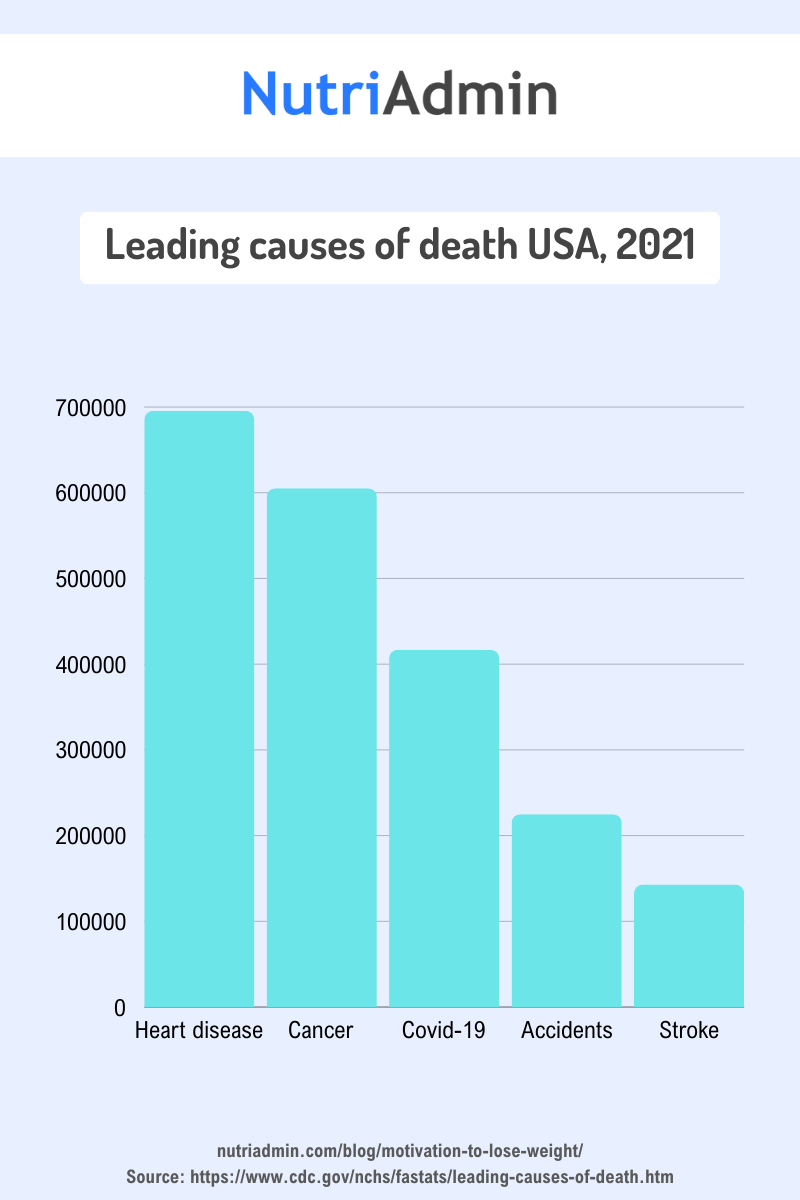
How the obesogenic environment drains our motivation to lose weight
Back in the old days, I couldn’t resist the urge for specific fattening foods. I would be studying, or watching TV, and suddenly feel the craving for a burger and fries, or the craving for sweets and crisps.
I would go to the supermarket and load up on everything I could lay my eyes on. Chocolate bars, crisps, ice creams, pastries, you name it. I could gobble up 4,000 Kcal worth of junk in one sitting. Please remember humans require around 2,000-2,500 Kcal a day, and last time I checked I was human. My eating prowess was more in line with that of a Tyrannosaurus Rex.
It was so easy, so available, so instant. Loads of these junk food items are so incredibly cheap. Even as a student with little money I could afford to indulge in unholy overeating several times a week.
By contrast, the thought of spending more money (expense) to have the privilege of cooking food (effort), having to wait more (patience), just to eat what felt like a less satisfying meal (healthy home-cooked meal) seemed completely unappealing.
It doesn’t have to be this way
If you’ve ever embarked on the weight loss journey, you’re well acquainted with its challenges. The process is arduous, often marked by moments of frustration and bouts of depression.
This emotional toll can stem from slow progress, setbacks, or simply the daunting nature of overhauling one’s lifestyle. It’s a path paved with steep climbs and inevitable falls, testing your resolve and patience to their limits.
Likewise, if you coach clients as a nutritionist or personal trainer, you know that it can be challenging to guide clients to change their habits. It takes time, effort, and persistence.
Fortunately, with enough mental training, habit building, and discipline, things get easier. It comes down to learning how to stick to a diet mentally.
In my own life, I have barely eaten any sweets at all for the last several years. I’ve had stretches of up to a consecutive year without eating a single sweet. I rarely feel cravings for sweets anymore, and when they occur they are much weaker and easier to resist.
Why do we do the wrong thing when we know better?
The most frustrating part is: often, we know what to do to lose weight and stay healthy – such as eating a healthy diet and exercising – but we still don’t do it. This paradox is not just baffling but also disheartening.
Why can’t we command our brains to take the actions we desire? It boils down to a conflict between our immediate desires and long-term goals.
Basically, our brains are wired to seek instant gratification and avoid discomfort. In today’s environment, this equates to choosing sedentary leisure and consuming high-calorie, satisfying foods.
This innate preference, coupled with an obesogenic environment, makes it challenging to pursue the healthier, but often more demanding, path of diet and exercise. How to stick to a diet mentally when bombarded with the promise of gratification everywhere?
Understanding this internal struggle is the first step towards overcoming it. Knowledge is power. And there are strategies that can help align our immediate choices with our long-term health aspirations.
So now the question becomes, how can we train our minds for more willpower and discipline? Can this even be achieved?
Motivation and willpower for weight loss
Most nutritionists will learn nutrition in school. Personal trainers will learn physiology and exercise. However, understanding the human body and its nutritional needs is just one side of the coin.
Nutrition and physiological knowledge is crucial for better outcomes. After all, you cannot improve your lifestyle if you don’t know what needs improving. That being said, knowledge in itself is not enough.
Often, the real challenge for a lot of people lies in the psychology of weight loss. Motivating clients (or motivating yourself) to consistently make healthier choices and maintain an active lifestyle. This amidst an obesogenic environment that is making things harder.
In my opinion, to truly excel in helping clients lose weight and regain health, one must also become adept at understanding and influencing human behavior.
Helping clients with willpower, discipline, motivation, and habit forming. Ultimately achieving the motivation for weight loss and teaching clients how to stick to a diet mentally. Especially when faced with cravings and setbacks.
Getting the help from nutrition and fitness professionals
In my own personal experience, I had the invaluable help of a nutrition coach. My coach kept me accountable, guided me, and motivated me to lose weight.
After a while, with increased confidence, knowledge, and drive, I was able to self-motivate and be more disciplined on my own. Sticking to my diet plan mentally became easier.
Experiences may vary. Some people are able to lose weight on their own, and others need guidance or coaching. Whatever your case, there is no one-size-fits all approach. You should try a few ways to tackle the problem until you find what works for you.
Understanding discipline for weight loss willpower
Understanding willpower and discipline requires digging deeper into how our brains process these concepts.
At its core, willpower can be seen as the ability to resist short-term temptations in order to achieve long-term goals.
This implicates the prefrontal cortex of the brain, which is responsible for executive functions. These include decision-making, self-control, and regulating emotions.
Discipline, often used interchangeably with willpower, emphasizes a habitual application of this self-control to steer our actions consistently towards our goals.
Neurological studies indicate that willpower is not just a metaphorical muscle but may also have a physical component in the brain, depleted by use but strengthened with exercise.
Ego depletion and willpower for weight loss
Ego depletion is a psychological theory suggesting that willpower draws upon a limited reserve of mental energy.
You can think of it as a battery that, once depleted, reduces our capacity to exert self-control. When ego depletes, it will be hard to make decisions aligning with our long-term goals.
This concept was first introduced by social psychologist Roy Baumeister. It is based on the idea that making repeated efforts requiring self-control can tire one’s mental resources.
This fatigue, in turn, makes it harder to resist subsequent temptations or tasks requiring discipline.
Ego depletion on a typical day when losing weight
For instance, after a long day of making decisions at work, you might find it more challenging to resist the allure of fast food. This is even if you’re committed to eating healthily. Anyone that has eaten late night ice cream after a long day knows this.
Understanding this phenomenon is crucial as it highlights the importance of managing our mental reserves. For instance, strategically timing tasks requiring significant self-control. This will help us to better align with our long-term aspirations for health and wellbeing.
So, summing up, each decision requiring self-control taps into a finite reservoir of mental energy. This explains why resisting temptation becomes more difficult as the day progresses. Alternatively, it also taps onto why a stressful day can lead to poor dietary choices.
Just like a muscle, regular training in the form of self-discipline exercises can increase our mental resilience over time. This is key in getting the motivation to lose weight and mastering the psychology of weight loss.
Controversy on ego depletion
Despite its widespread acceptance in the field of psychology for many years, the theory of ego depletion has come under significant scrutiny. Recent meta-analyses and replication studies have raised questions about the reliability of earlier findings supporting ego depletion.
Critics argue that some of the foundational experiments suffer from problems. These include: small sample sizes, publication bias, and in some cases, a failure to replicate significant effects.
This has led to a reevaluation of the ego depletion concept. Some researchers suggest that the effect may be less about a depletable resource and more about individuals’ beliefs in their own willpower capacities.
Additionally, factors such as motivation and perceived task difficulty appear to play more crucial roles in the ability to exercise self-control than was previously understood.
This controversy has sparked a lively debate within the psychological community. There has been a drive for further research to explore the nuances of ego depletion and self-control.
Being practical with regards to weight loss motivation
From a practical perspective, in my opinion, you don’t need the perfect mental model. If you want to lose weight you don’t need to have a PhD in psychology or understand the finer nuances of theories like ego depletion.
The takeaway is: a lot of people have experienced being less able to resist temptations (e.g. remain disciplined) when stressed, under-slept, hungry, tired, or after a long day of multiple decisions.
In my personal life, I always find it hardest to stick to my habits when the factors above mentioned come into play. The worst for me is losing sleep. If I miss an hour or two of sleep then the day is completely derailed.
So, being practical, even if we don’t know for sure the exact mechanism in the brain, we know that things like sleeping well and managing stress definitely help.
The brain and our behavior is complex. Psychology is still evolving and being refined. For our purposes though, the model of ego depletion is practical. It can help us achieve our goals and maintain the motivation to lose weight.
Motivation for weight loss and ego depletion
How does ego depletion affect motivation in the context of dieting and weight loss?
Ego depletion plays a significant role in the challenge of maintaining motivation to lose weight. It makes it harder to adhere to a healthy eating regimen.
Essentially, as we go about our day, each decision that requires self-control drains a bit of our weight loss willpower. This ranges from resisting a donut at work, to choosing a salad over fries, to larger decisions.
This depletion of willpower makes subsequent decisions more challenging, especially when it comes to food choices.
For someone trying to lose weight and to stick to a diet mentally, motivation will suffer. This can manifest as a drop in discipline by the end of the day, leading to bad choices. E.g. Choices that are inconsistent with their long-term health goals.
It can also lead to a loss of weight loss willpower when fighting social norms. I often found it hardest to resist cake when it was someone’s birthday, or at a party.
The hardest may be resisting unhealthy food choices if you are sharing food with your partner or family. If you find yourself ego depleted at the end of the day, and you are given dessert at home, you will succumb.
Minimizing weight loss willpower depletion
Understanding the concept of ego depletion can empower individuals to structure their day to minimize willpower depletion.
For instance, preparing healthy meals in advance or scheduling exercise for times when willpower is highest can help sustain motivation. I definitely found that useful advice.
Consider getting home tired after work, with ravenous hunger. Imagine these two scenarios. Scenario 1: you have a healthy meal you’ve made beforehand ready. Scenario 2: you haven’t prepared.
When you are hungry and have a pre-made healthy meal things are easier. When you haven’t prepared, choices are either cooking from scratch (never going to happen) or eating something quick (and probably unhealthy).
Additionally, it’s important to recognize that willpower can be strengthened over time. The way to do this is through consistent practice and self-discipline.
This emphasizes that the journey to weight loss is not only about what we eat. It’s also about how we manage our decision-making processes and motivation levels for weight loss.
How habits develop willpower and help with motivation
Developing healthy eating habits plays a crucial role in enhancing willpower and sustaining motivation. This is particularly germane in the context of dieting and weight loss psychology.
When we establish a routine of choosing healthy foods, over time, these choices become automatic responses rather than decisions that require a conscious effort and the exertion of willpower.
This habitual behavior significantly reduces the mental energy or willpower needed to make healthy choices. This leads to minimizing the overall depletion of our willpower reserves throughout the day.
For instance, if eating a nutritious breakfast becomes a habit, you’re less likely to spend mental energy debating whether to have a donut or a smoothie in the morning.
This automatic choice preserves your willpower for more challenging decisions later in the day. You can learn more about habits, for example, from Charles Duhigg’s The Power of Habit. There are other references and further reading listed at the end.
Changing your taste and food preferences
I remember craving fries and hating the taste of vegetables back in my unhealthy days. I would add a cart of salt or sugar to anything I ate. You often wouldn’t be able to see the triple-fried potato chips as they would be drowned in ketchup and mayo.
Well, as it turns out, habitually eating healthy also gradually shifts our preferences and taste. This results in making the healthier choice not only easier but more desirable.
In my case, I estimate that 2-3 weeks of reduced salt leads me to become accustomed. Food starts tasting better with less salt. Conversely, going to restaurants where food is loaded with salt becomes unappealing.
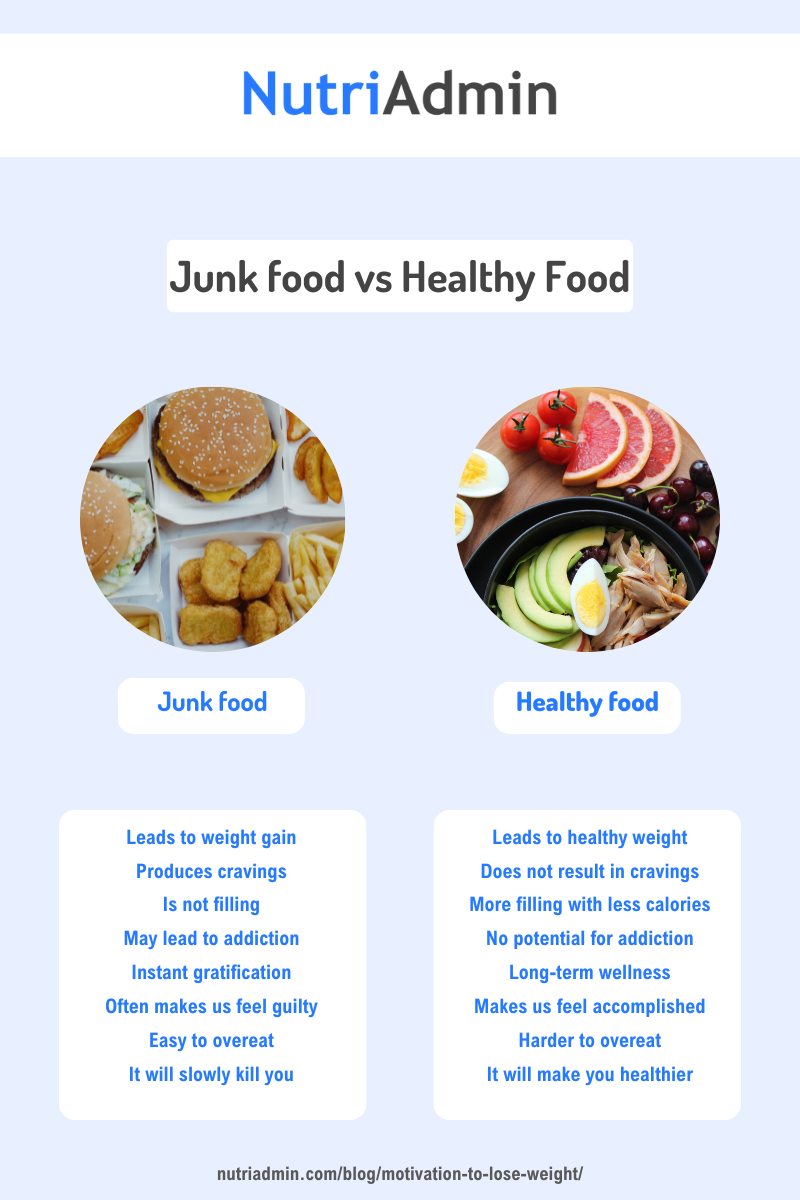
Craving sugar less over time
In terms of sugar, I used to eat loads of sweets almost every day. Then, after losing weight and avoiding sweets for years, I now find even fruits like apples too sweet for me.
You may be shocked to learn that, probably the sweetest thing I eat these days is raspberries and blackberries. Everything else is too sweet for me most of the time.
In essence, by forming habits around healthy eating, we create a self-reinforcing loop where less willpower is needed. This is key in making it easier to maintain the motivation to lose weight. Ultimately ensuring we adhere to our long-term health and weight loss goals and stick to a diet mentally.
So don’t lose heart if eating broccoli sucks for you right now. Eat it for a few weeks and you will start to appreciate it! These days half my plate is often vegetables, and I love it!
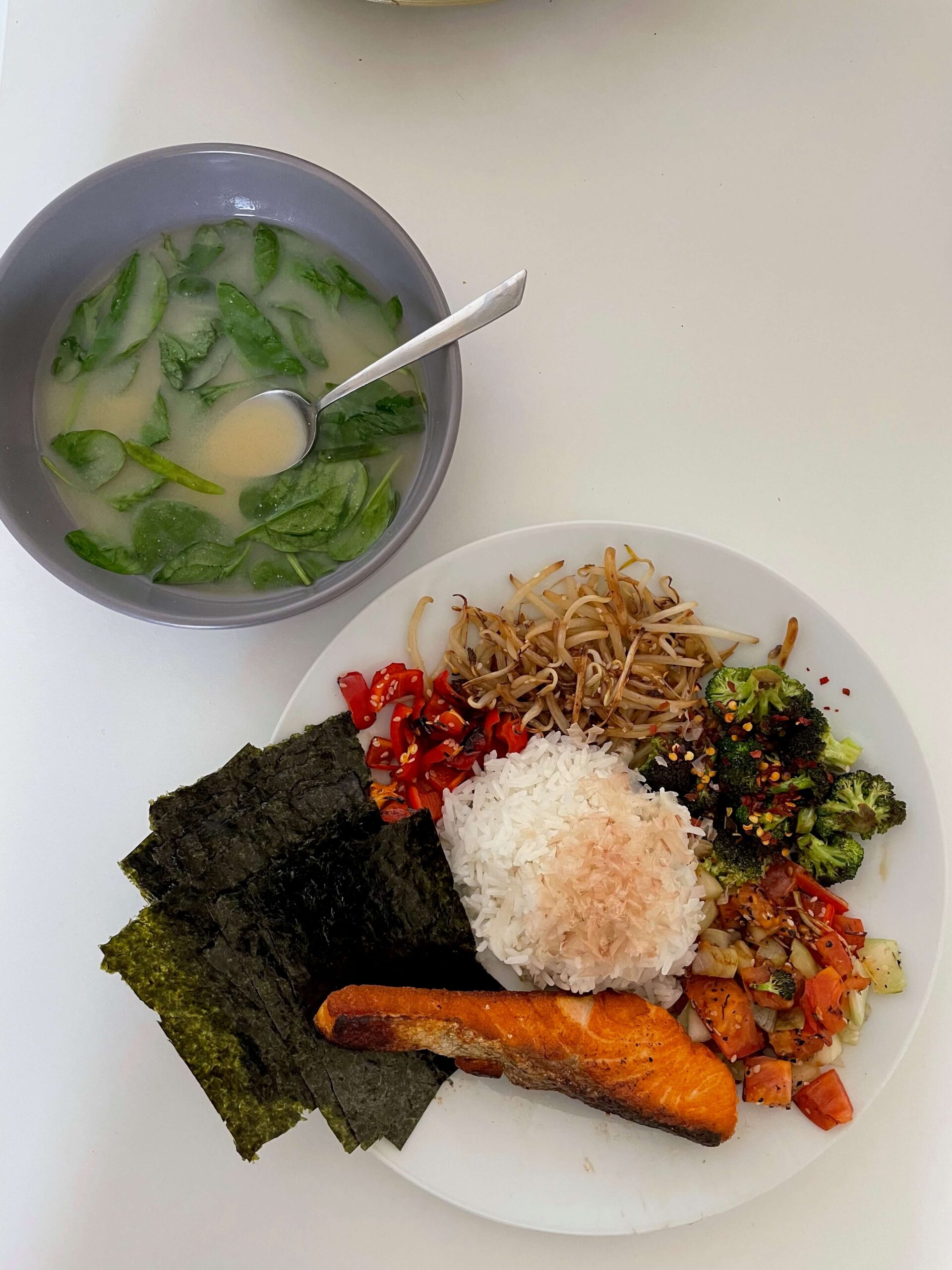
Dopamine and motivation to lose weight
Understanding dopamine is crucial to comprehending the intricacies of human motivation and behavior.
Dopamine is a neurotransmitter, a chemical released by neurons (nerve cells) to send signals to other nerve cells. Often referred to as the “feel-good” hormone, it plays a pivotal role in our brain’s reward system.
This system is responsible for generating feelings of pleasure and satisfaction as a response to certain stimuli. For example, eating tasty food or accomplishing a goal.
Dopamine not only contributes to happiness and pleasure but also motivates us to pursue activities that are likely to result in reward. In this way, dopamine helps reinforcing behavior and making it more likely to occur again in the future.
This neurotransmitter’s influence extends to various aspects of behavior and cognition, including learning, motivation, heart rate, mood, and attention.
Junk food and dopamine in the brain
The allure of instant gratification activities, particularly through the consumption of sugar and various additives found in processed foods, lies in their ability to significantly trigger the release of dopamine in our brains.
The release of dopamine with sugar and other additives in food has even led to the concept of food addiction. After all, the reward system in the brain relying on dopamine is not exclusive to sugar. It’s also the same mechanism that leads to addiction with cocaine, heroin and other hard drugs.
Whether sugar and other additives constitute an addiction or not is up for debate. I personally think I found them addictive as I ate them compulsively in the old days. That is just anecdotal evidence, but many people report similar experiences. Regardless, understanding dopamine is still important.
When we consume foods high in sugar, our body recognizes them as a valuable source of quick energy. This recognition stimulates the reward centers in our brain, prompting an immediate release of dopamine.
It will be really hard to stick to a diet mentally when junk food and instant gratification are common in your life.
The vicious circle of instant gratification draining weight loss willpower
The surge of dopamine with instant gratification foods produces a feeling of pleasure and satisfaction. This leads to reinforcing the behavior and making it more likely to be repeated.
Consequently, the immediate gratification derived from sugary or highly processed foods can become a potent motivator. Unfortunately, this is often at the expense of our long-term health goals.
The cycle of seeking out these dopamine-inducing foods can lead to habitual overeating. Also to a preference for processed foods over healthier options. This happens as our brains become accustomed to the quick rewards junk ultra-processed foods provide.
When I was struggling with my weight, my brain craved instant gratification foods. These included sweets, crisps, pastries, and other highly processed options. I felt hardly any motivation to go for healthier options. This is a trained behavior, and it can be changed!
Finding stress-relief strategies that actually work
Feeling stress will sabotage your goal to lose weight. Why is that? Because, when feeling stressed our brains will produce dopamine that makes us crave fattening foods.
Moreover, the brain also will induce stress hormones like cortisol and adrenaline that make us feel anxious until we satisfy our craving. It feels like you have an itch that must be scratched.
The dopamine promises our brain a reward when eating, yet we feel worse after indulging. That’s because dopamine just makes us feel like something will make us feel good. But whether that something actually results in happiness is not guaranteed.
We will all feel stress in different situations, that’s just inevitable. For that reason, it becomes imperative to have handy stress-relief strategies available for all situations. Crucially, your strategies should not rely on eating junk food, or other self-defeating behaviors when trying to lose weight.
Example strategies to help coping with stress
While many of the most popular stress-relief strategies fail to make us feel better, some strategies really work. According to the American Psychological Association, the most effective stress-relief strategies are:
- Exercising or playing sports
- Praying or attending a religious service
- Reading
- Listening to music
- Spending time with friends or family
- Getting a massage
- Going outside for a walk
- Meditating or doing yoga
- Spending time on a creative hobby
Conversely, the least effective strategies to relieve stress are:
- Gambling
- Shopping
- Smoking
- Drinking
- Eating
- Playing video games
- Surfing the Internet
- Watching TV or films for more than two hours
Why do some strategies work and others fail?
What is the main difference between the strategies that work and the strategies that don’t when it comes to relieving stress?
Rather than releasing dopamine and relying on the promise of reward, the real stress relievers boost mood-enhancing brain chemicals like serotonin and GABA, as well as the feel-good hormone oxytocin.
They also help shut down the brain’s stress response, reducing stress-related hormones like cortisol and adrenaline.
Can you build the habit to go for a short run or walk, meditate, or talk to a friend? Especially when feeling stressed?
If you manage to slowly shift to these behaviors that actually make us feel better, then this will have a positive impact on your capacity for self-control. The end result: the willpower for weight loss and the sustained motivation to lose weight.
Neuroscience insights on the motivation to lose weight
Neuroscience has made significant strides in unraveling the mysteries of the human brain. This has resulted in the shedding of light on how motivation, willpower, and self-control are influenced and controlled.
These insights allow us to better understand the underlying processes that guide our decisions and actions. This is especially relevant in the context of the psychology of weight loss.
Through studying the brain’s functioning, we can develop more effective strategies for fostering positive habits. Ultimately overcoming the challenges associated with lifestyle changes.
Neuroplasticity and impact in behavior change
One of the most groundbreaking concepts in modern neuroscience is neuroplasticity. This is the brain’s ability to reorganize itself by forming new neural connections throughout life.
This adaptability means that our brains are not fixed and immutable. Rather, our brains are dynamic and capable of change. These changes are triggered in response to our experiences, behaviors, and environment.
Basically, engaging in new activities, learning skills, or establishing habits prompts parts of the brain to physically change shape, size, and strength.
For instance, routinely practicing mindfulness or meditation can enhance areas of the brain responsible for self-regulation and emotional control.
On the other hand, habitual exercise can improve cognitive function and memory. This is a consequence of stimulating the growth of new connections in the brain.
Strengthening the mind and body for weight loss
Meditation, exercise, and other activities have been proven to develop key areas of the brain. These areas are linked with cognitive function, discipline, and willpower.
Similarly, consistently exerting self-control in other ways, or engaging in cognitive tasks works too. These can strengthen the neural pathways that make these tasks easier and more efficient over time.
This plastic nature of the brain is uplifting news. It means that, with persistence and practice, substantial change is possible and building new habits is attainable.
This explains how, in the context of losing weight, you can train your brain over time so that resisting food temptation becomes easier.
The seat of willpower in the brain
The Anterior Mid-Cingulate Cortex (aMCC) is increasingly recognized by neuroscientists as a critical component of the brain. The aMCC is involved in the regulation of willpower, decision-making, and even the determination to persist in the face of adversity.
Located in a deep part of the frontal lobe, the aMCC plays a vital role in multiple areas. These include emotion regulation, pain processing, and cognitive control. Essentially, it is where the mental processes governing willpower live. It appears that the perseverance needed to achieve long-term goals is centered here.
Research into the aMCC has revealed its significance in linking motivational outcomes to actions and decisions. Clearly the aMCC must play an important role in the motivation to lose weight, and in the ability to stick to a diet mentally.
So how does it work? When faced with a challenging situation, the aMCC is activated. This process helps to allocate the necessary resources to maintain focus and resist temptation.
This area of the brain essentially acts as a command center, assessing the benefits and drawbacks of certain decisions, particularly those involving conflict or high effort.
The aMCC and longevity
Furthermore, studies have shown that the aMCC is not just about cold, hard decision-making. It’s deeply interconnected with our emotional lives and the “will to live.”
Its engagement in pain and reward processing suggests that it also plays a part in determining the emotional valence of our decisions. Potentially guiding us toward actions that are not only logical, but also aligned with our survival instincts and well-being.
Understanding the function of the Anterior Mid-Cingulate Cortex opens up new avenues for enhancing self-control and motivation. There are particular ways to work on it, like through targeted cognitive training and behavioral therapies.
Ultimately, it’s important to understand that the aMCC underscores a more profound appreciation for the complexities of the human brain. There is an incredible capability for adaptation and change. This is essential for personal development and overcoming life’s challenges.
Example of the aMCC and the motivation to lose weight
You can listen to How to Build Immense Inner Strength for a related discussion. This is a podcast episode where Dr. Andrew Huberman interviews David Goggins about his immense willpower.
Goggins is a retired Navy SEAL, highly accomplished ultramarathoner, best-selling author, and influential public speaker. He has pushed the limits of physical endurance and strength. His feats include running 200 mile ultramarathons, or setting fitness records. At some point this has included a Guinness world record for the most pull-ups in 24 hours.
The thing with David Goggins is that he had a brutal and tragic childhood. At around 20 he weighed 300 lbs, could barely read and write, and had no future prospects.
Tired of misery, David decided to make a drastic change. Through a dramatic shift in his mindset, and by adopting an uncompromising attitude towards self-betterment, David managed to turn things around.
In the interview, David shares his experience and together with Huberman they delve deep into David’s mind. The role of the aMCC with regards to willpower is mentioned, but this is just a theoretical model. Someone like David is a practitioner, not a theoretician. At the end of the day, you have to do the work and put in the effort to improve.
The virtuous and vicious circle of discipline
When I was at my peak weight, I found it virtually impossible to resist food cravings. The allure was so intense. I have been there, and I can understand how some people really struggle to resist their favorite treats.
Fast-forward to today, and the junk food that once held me hostage no longer has any effect on me. I don’t crave fattening foods anymore, and I find it virtually effortless to eat healthily.
Let me make an analogy. You know how someone that smokes a lot will crave cigarettes? They will feel anxious when they can’t smoke, and will be triggered by cues to pull up a cigarette.
Yet, if you have never smoked (like myself) you never feel any attraction whatsoever to cigarettes. You don’t think about them, you don’t care for them. In fact, they may even repel you. That’s the opposite effect they have on someone that habitually smokes.
What I am trying to say is that, for me, and for a lot of people, getting started when making a change is the hard part. Let’s be honest, it sucks! Giving up your preferred foods is painful. Starting a new exercise routine is painful. But, what if you keep up the effort?
In my own experience and that of countless others the battle gets a bit easier every day! Neuroscience is trying to explain this with experiments to model the experiences of people with willpower.
You can develop the aMCC for weight loss willpower
The Anterior Mid-Cingulate Cortex (aMCC) is possibly in charge of controlling your levels of willpower in the brain. What experiments are revealing is that this part of the brain can change size.
- Higher weight individuals have a smaller aMCC than the average person
- As these individuals begin exercising, eating better, and losing weight, their aMCC grows in size
- Athletes, pushing to the limit of physical achievement have the largest aMCC
- People that live long lives retain the size of this part of the brain
Now, I am not a neuroscientist, and I can’t pretend to understand the intricacies of how the aMCC works. As far as I understand though, thanks to neuroplasticity, your brain can adapt.
This means, you can strengthen your willpower with discipline, and by facing challenging situations. This is similar to how progressive overload at the gym will help you develop stronger muscles.
Implications for weight loss willpower
If these studies prove accurate, then the implication is that we have less willpower when we are heavier. Which is possibly one of the reasons why breaking the cycle and changing habits is so hard at this stage.
Conversely, as we do some exercise, we establish more discipline. This leads to setting a higher bar for ourselves. As a consequence, our levels of willpower increase. This underscores the importance of thinking about both mind and body for weight loss.
Again, the research on this is relatively new, and I’m not an expert in neuroscience. The findings look promising though. They would seem to explain the experience of many people – including myself – that find resisting food cravings easier once some weight has been lost.
The good news about losing weight with low willpower
So, is there any hope if it’s true that the higher your weight, the lower your willpower? Not sure if it’s totally accurate, and individual factors may apply, but let’s assume this worst case scenario.
There is good news for those struggling with low weight loss willpower. When attempting to lose weight, changes have different impacts depending on your current weight.
What this means is that when you’re starting from a higher weight, even modest changes can have a significant impact.
When I started losing weight, I identified my most unhealthy habitual meals. Then, I focused on replacing those with healthier alternatives.
For instance, I changed my 4-weekly visits to McDonalds by cooking chicken with vegetables at home. I didn’t have to change my entire lifestyle. I started with a few obvious changes like that.
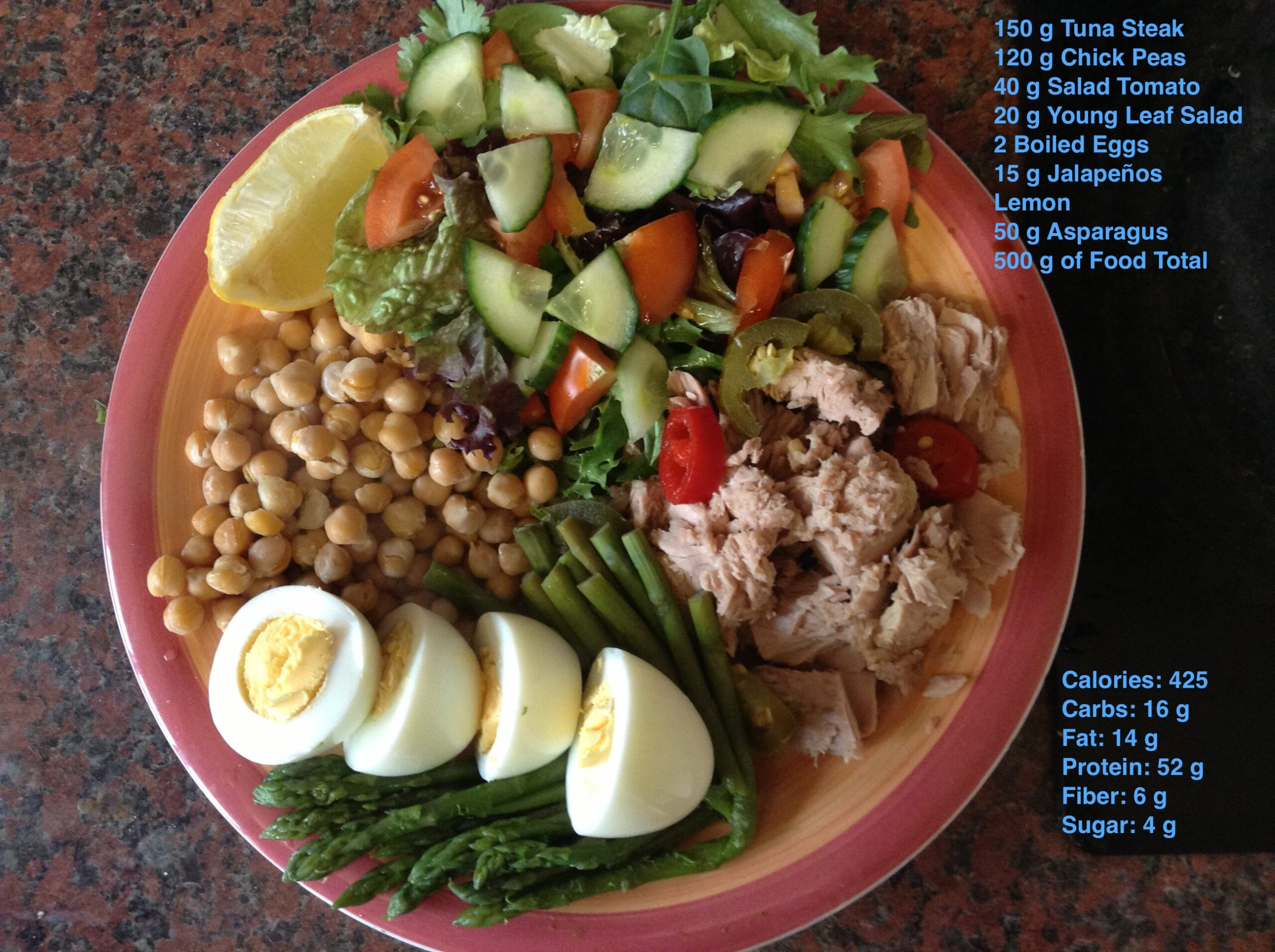
Managing expectations on how to stick to a diet mentally
It’s important to manage expectations and expect obstacles along the way.
Did my strategy of swapping unhealthy meals for healthy alternatives work every time? No, it didn’t. I would still occasionally indulge in my food cravings. But even though there were obstacles in the road, a few of these changes made a massive difference.
Going from 4 visits to a fast food joint a week to just 1 (even though my target was zero) still led to weight loss. Eventually, after a few months I managed to drop the unhealthy habit completely, but it took a while to stick.
The result? I started losing around 1kg per week (2.2 lbs), which I kept for a few months. That was incredible progress!
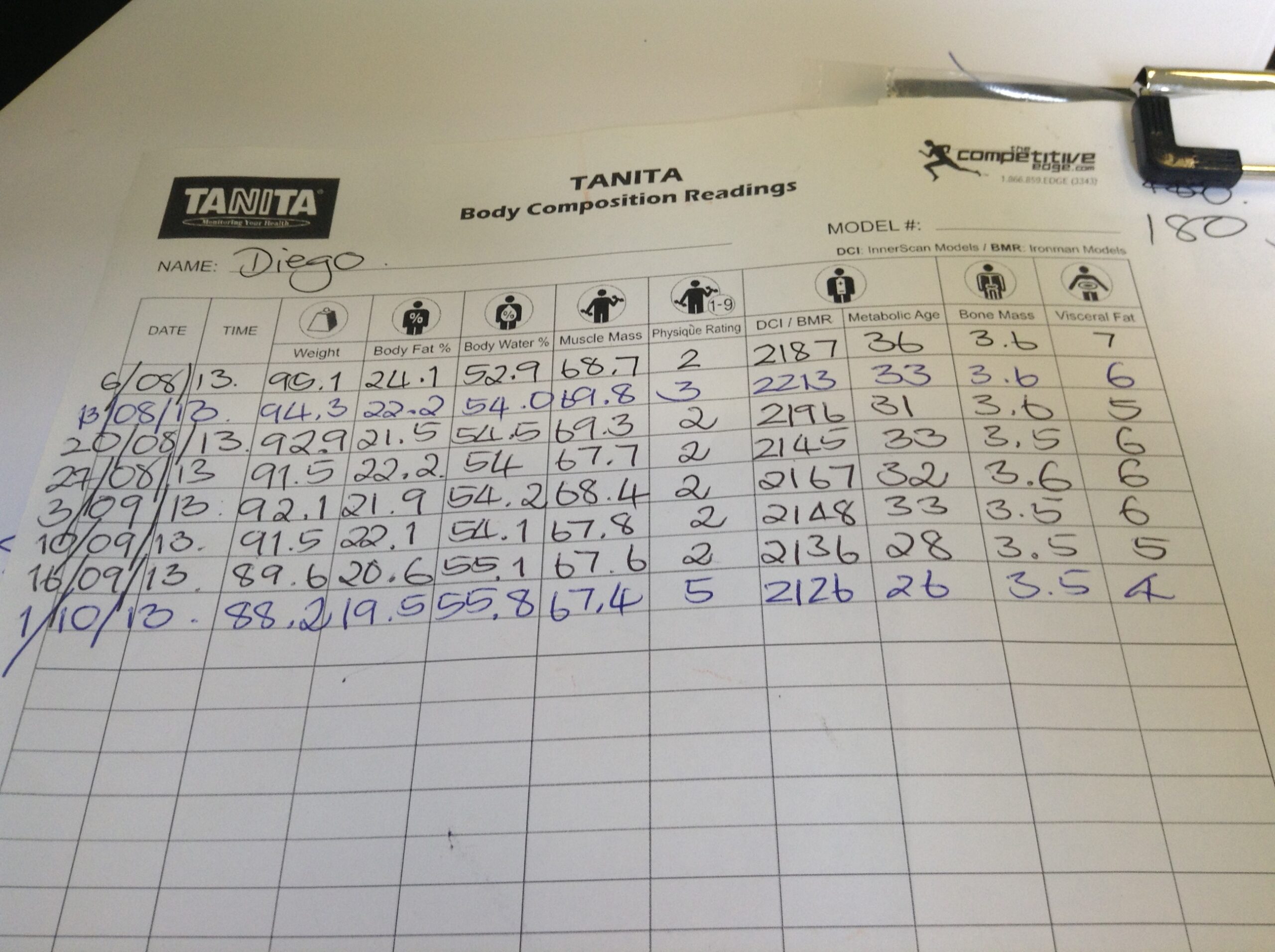
By contrast, if you are someone that is already quite fit, losing the final 0.5kg of body fat is hard. It will require you to pretty much make optimal choices with your food and exercise.
There is a point of diminishing returns, where the body finds it harder and harder to adapt as you approach your ideal weight. So good news if you are struggling with your weight. The first few pounds you lose can come off relatively quickly!
Starting with small changes for mind and body weight loss
Changes to your nutrition and exercise habits will have a bigger impact if you are currently living an unhealthy lifestyle.
This is both encouraging and practical, as it means that you don’t need to overhaul your entire lifestyle overnight to see results. Simple adjustments, like the ones I did to start with, will help. Some examples can include:
- Incorporating more water
- Reducing portion sizes slightly
- Replacing fries for vegetables in meals
- Adding a short walk to your daily routine
- Changing the top 3 unhealthy food chains you go to for 3 healthier places
Changes like the above can kickstart the weight loss process. These small, manageable changes can lead to noticeable improvements in your health. Your motivation to lose weight will increase if you continue on this path and see progress.
The results will enhance your weight loss willpower. But the good news doesn’t stop there.
As you make positive changes, under the hood, the aMMC in your brain will get stronger. This should lead to you having more self-control. This is how to stick to a diet mentally. You acquire the ability to tackle the next set of challenges in your path to wellbeing by enhancing your willpower.
Avoid the urge to get instant results and drain the motivation to lose weight
When I first tried to lose weight, I spent around 6 months where I made no progress. I tried a variety of misguided strategies and failed multiple times to get results.
Now, on reflection, I see that one of my mistakes was trying to get results too quickly.
For instance, I tried a hyper-low calorie diet. This diet mainly consisted of salads, at around 1,200Kcal a day. This is when my BMR must have been double that at least.
After a couple of weeks of my misguided diet, I had lost a bit of weight, but this was unsustainable. I actually got super sick, and regained the weight back within days. Needless to say this was an extremely disappointing and painful experience.
When you are unhappy with your body weight you dream of making a drastic change to slim down fast. Not sure if this has worked for others, but, at least in my opinion, I don’t think going from zero to a hundred in one day is the best idea.
So what’s a better strategy that you may want to try?
Gaining motivation to lose weight: Practical tips
With all the theory outlined above, we now turn our focus to practical, actionable tips. These are strategies that most people can adopt to start developing their willpower and mastering the art of weight loss.
I have done all of these, or at least tried them personally. Many have worked for me and I have incorporated them into my lifestyle. You don’t have to do everything listed here. Rather, treat it as a collection of tactics that you can experiment with. Ultimately, mind and body weight loss requires you to find the personal tips that work for you.
Removing instant gratification sources
One of the most significant challenges in developing self-control is overcoming the allure of instant gratification. This is especially relevant in the context of weight loss willpower. How to stick to a diet mentally when seduced by tasty treats all the time?
This concept taps into the dopamine reward system mentioned earlier. This system is wired to favor immediate pleasures over longer-term benefits. It has a major impact on the motivation to lose weight.
In my own experience, I have benefited immensely from identifying and removing common sources of instant gratification. These hijack the reward system, and include:
- Social media
- Video games
- Adult content online
- Sugary and highly processed foods
- Youtube
- News
- Caffeine
- Excessive TV
- Excessive smartphone use
- Alcohol
- Smoking
- Drugs
Who are you to tell me what to do?
I can already feel the heat of some of you vehemently opposing my list above.
It’s true that I have personally eliminated or highly reduced all the above instant gratification sources in my life. I have been doing this for years. That doesn’t mean you have to do the same though.
Essentially, I have trained the habits one by one over time. This was hard, but these days I have the most willpower I have ever had. You can read my productivity machine article for more info.
Now, some of you may be thinking: “Diego, do you want me to get rid of literally everything that is good in life?“
Hey! I’m just a guy on the internet. You don’t have to do anything I say. This is what worked for me, it may work for some or may not.
Making what works for others your own. A personal weight loss willpower plan
My goal here is to make you aware of the connection between quick dopamine rushes and self-control. Do you spend half the day engaged in instant gratification activities? If so, this will dramatically reduce your ability to resist food cravings, amongst other things.
I know, because that used to be me when I was younger. When I gained all that weight more than 10 years ago I was hooked on instant gratification. I was on social media, playing video games, eating junk food, and indulging on Youtube for hours every day.
Ask yourself, are there any activities or habits that are damaging the reward system in your brain? Just removing or reducing one habit may unlock the extra weight loss willpower you need. Additionally, doing challenging things can boost your confidence, helping you to tackle losing even more weight and other obstacles.
Incorporating habits that build weight loss willpower
After you remove habits that mess with your dopamine, you may benefit from adding new habits to your lifestyle that will increase your willpower capacity.
In my case, I have incorporated the following habits into my routine for the last few years:
- Prioritizing getting quality sleep every night
- Cold showers in the morning
- 10-minutes daily meditation
- 5-minutes daily stretching
- Daily cycling to work
- Twice-a-week gym sessions
- Writing my goals every day
- Committing to working a set amount of focused hours every weekday, without procrastination
- Reading books for long, uninterrupted stretches
- Preparing and cooking healthy meals, taking time to do this well
Some habits build the motivation to lose weight
The habits above are a sample of things I do to develop my discipline and willpower.
In my personal experience, when I do things that I don’t want to do (e.g. who likes cold showers?) I go through an initial phase of pain, but eventually, after multiple attempts, the habit gets easier.
It’s pretty crucial to sleep well. That’s probably the number 1 thing we should all get right. Without good sleep nothing else matters. Your brain will be operating at reduced capacity, both cognitively, and with regards to self-control.
Habits like stretching or meditating every day have been shown to build discipline.
There are other habits you can incorporate. They all have in common a long-term focus, and doing something that requires discipline. The more you do, and the more consistent you are, the stronger your mind becomes.
How does building a habit look like
Habits are not built in a day. It took me years to finally get accustomed to meditating every day.
Let me illustrate: I first learnt about meditation in 2014 and was intrigued. I decided then to give it a go.
- Tried mediating in 2014, gave it up after 2 weeks
- Tried again in 2015, lasted a month but gave it up
- Tried it sporadically for a few years, then forgot about it
- I started to think, maybe all this meditation is rubbish. After all, the books I’ve read about it are biased and there are loads of people out there trying to sell me meditation. I have better things to do! (rationalization)
- In 2019, by chance, I met 3 different people I respected that all talked about meditation. They all said they had been meditating regularly for years (after a lot of failed attempts) and now they just would never go back.
- Finally, in 2020 I started meditating regularly. The first 3 months were so boring and it was tempting to stop.
- After those three months of sticking with it it became easier. Now in 2024 I have barely missed a day of meditating since 2020.
Building habits for weight loss takes time
The above is my personal experience and an example of building a habit.
The good news is: I have found that, over the years, building extra habits stacked on top of my previous ones has become easier.
For instance, I decided a year ago to just stretch 5 minutes every morning, and I have just been doing this without quitting with low effort (even though I hate it). Compare that to all the trial and error required to make meditation stick for me.
Likewise, it took me many attempts to master the motivation to lose weight, and to acquire the willpower and discipline for weight loss.
If you have to lose a large amount of weight, the task can seem daunting. What you have to understand is that a challenge that big may not be possible with your current willpower. Luckily, you have enough to make a small change. After that change, your existing discipline will strengthen, and you will be able to tackle the next stage.
So, don’t give up. New habits are hard, but they get easier over time. Your brain will get stronger.
Avoiding hunger at all costs
Hunger is a formidable adversary in the battle for weight loss. Hunger is capable of undermining your willpower, triggering intense food cravings. Cravings ultimately lead to overeating.
When you’re hungry, your body sends powerful signals that can override your best intentions. These make it much harder to stick to a diet mentally. Hunger is a massive drain on the motivation to lose weight.
And if you think “I’ll just resist my cravings”, let’s circle back to ego depletion. If you are constantly spending your limited willpower in resisting food, then sooner or later you will fail.
Hunger is a bit like holding it in when you need to go to the toilet. You can resist for a while, but not forever.
I don’t know about you, but when I was heavier, I found it all that much harder to resist food cravings when I was hungry. If you have a stomach I bet you can relate.
This is why, in the quest for weight loss, it’s crucial to avoid hunger whenever possible.
How to avoid hunger when eating fewer calories
You need to eat less to lose weight, but wouldn’t this mean you will automatically be hungrier? Well, not necessarily.
One effective strategy for staving off hunger, without increasing calorie intake, is to opt for nutrient-dense foods.
Foods like vegetables are low in calories but high in volume and nutrients, meaning they fill you up without weighing you down with excess calories.
On the other hand, by incorporating more fiber and protein into your diet, you create a feeling of satiety or fullness that lasts longer.
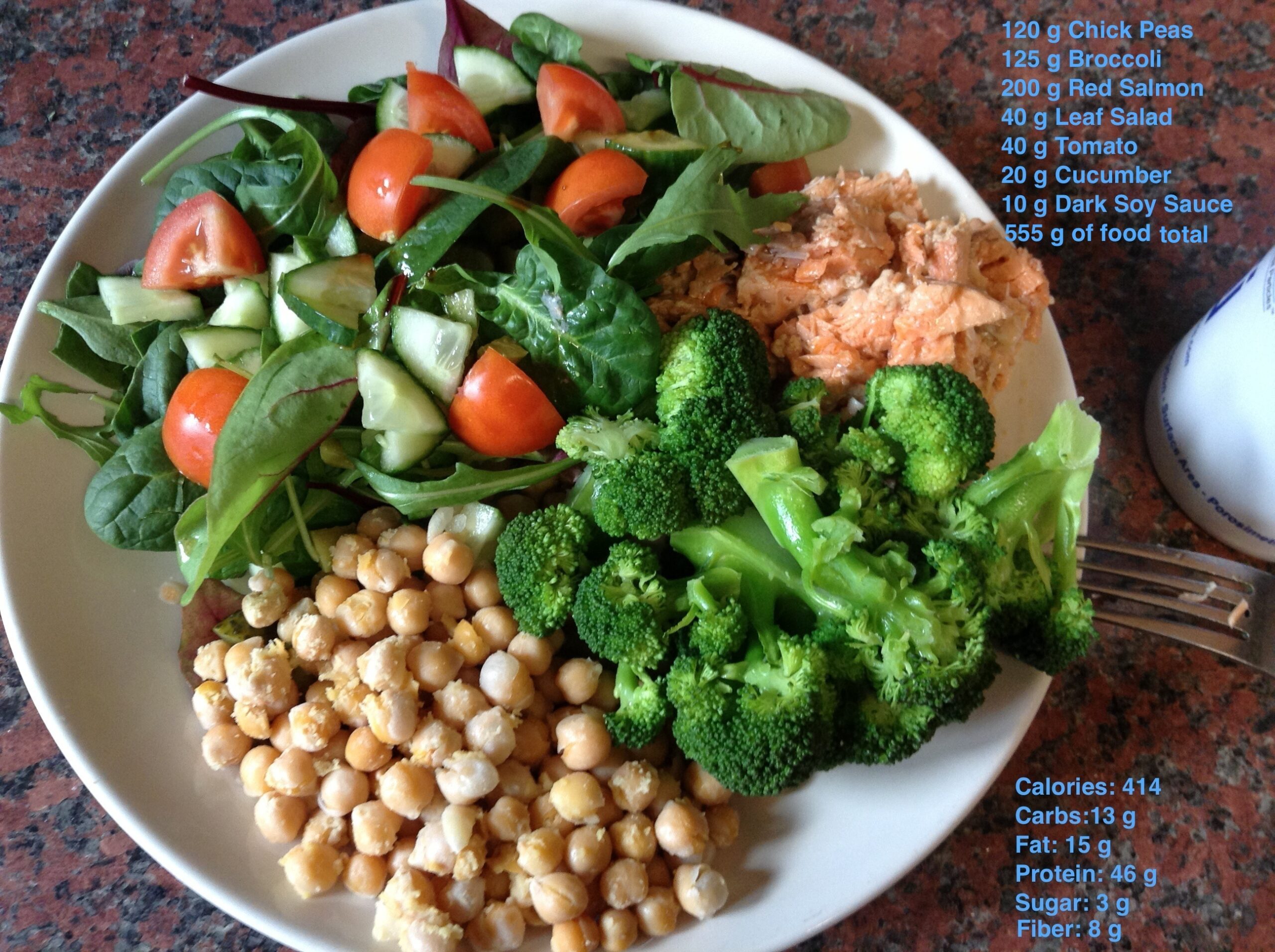
How fiber, protein, and nutrients help maintain the motivation to lose weight
Fiber slows down digestion, making you feel full for an extended period. On the other hand, protein is satisfying and helps maintain muscle mass, which is vital for a healthy metabolism.
Additionally, the strategic use of appetite suppressants like coffee or tea can be a helpful tool in your weight loss arsenal.
Both tea and coffee can provide a temporary feeling of fullness. Not only that, but they have the added benefit of containing minimal calories when consumed without added sugars or creams. However, it’s important to use these in moderation and not as a replacement for actual meals.
By carefully selecting foods that are both nourishing and satisfying, you can effectively reduce hunger pangs and maintain your weight loss willpower. The motivation to lose weight is not sustained by being hungry all the time!
Remember, the goal is not just to lose weight. Rather, it is to do so in a healthy, sustainable way that respects your body’s needs.
Food journaling and tracking to stick to a diet mentally
Keeping a food diary is a powerful tool in the weight loss arsenal for several reasons. I kept food journals with MyFitnessPal for many months during my weight loss quest. Nutritionists can analyze a client’s food diary with NutriAdmin.
Firstly, it helps in understanding the nutritional content of foods. This makes it easier to recognize which foods are high in calories and lacking in nutrients. This awareness can guide healthier food choices and boost your motivation to lose weight.
Secondly, a food diary can simplify adherence to a diet. By tracking what you eat, you’re more likely to stick to your intended meal plan and resist impulsive eating. If you want some inspiration, you can check these free meal plans for ideas.
Thirdly, it acts as an accountability partner. Writing down everything you eat encourages you to own up to your eating habits, good and bad.
Fourthly, tracking progress through a food diary can be immensely motivating. Seeing how your eating habits have led to weight loss over time can inspire you to keep up the good work.
Lastly, it serves as a learning tool. By reviewing your food diary, you can identify patterns or specific foods that may have led to overeating or deviating from your diet. This allows you to make informed adjustments moving forward.
In essence, a food diary is not just about tracking. It’s about building a deeper understanding and control over your diet and lifestyle choices.
Always be learning on mind and body aspects of weight loss
In my own journey to weight loss and health I have found knowledge to be invaluable. It has drastically boosted my motivation to lose weight.
Consuming helpful content is critical in nurturing not just a strong mind and body leading to weight loss. It’s also crucial in equipping oneself with the right knowledge to tackle challenges effectively.
It goes beyond mere willpower. Understanding the science behind nutrition, exercise, and mental well-being can significantly amplify one’s efforts in achieving health and weight loss goals.
For instance, being informed about the impact of different foods on your body or knowing the most effective workout routines can lead to smarter, more sustainable choices.
This principle extends to understanding psychological tactics to maintain motivation and discipline over time. In my quest for a healthier lifestyle, I’ve leaned heavily on reputable books, podcasts, and articles dedicated to health, fitness, and psychology.
This pursuit of knowledge has been a game changer. How? By enabling me to apply the most effective strategies and avoid common pitfalls.
It’s this combination of mental fortitude, physical endeavor, and informed decision-making that has facilitated my successful journey towards weight loss and better health.
Adapting your diet for weight loss
Losing weight is a goal that can be achieved through a variety of diets, as there is no one-size-fits-all approach.
For instance, individuals can successfully shed pounds by following the ketogenic diet or opting for a vegan lifestyle, despite the stark differences between the two. Embracing the fact that different diets work for different people is key to finding a sustainable and effective weight loss solution.
Download a PDF template to help motivate you to lose weight
To further assist in your journey towards a healthier lifestyle and stronger willpower, I’ve created a PDF handout summary.
This handout is designed to help you keep track of your habits. Especially focusing on identifying and reducing sources of instant gratification that may be hindering your progress.
It’s a practical tool that you can use to monitor your daily routines. Note down new habits you’re incorporating, and keep an eye on those you aim to diminish or eliminate.
You can easily download this PDF and print it out or keep it on your digital device for regular review and updates. This way, you’ll have a tangible guide to assist you in staying focused and committed to your goals.
Keep in mind, this is what has worked for me and is provided as a sample. I am not making any medical claims or promising you any results. You can also use habit tracking apps and other digital tools instead. Make the tools your own!
Finally, please remember you should seek professional qualified medical advice and make the weight loss process your own based on your individual goals, circumstances and capabilities.
Conclusion on the motivation to lose weight
In summary, this article shared a personal journey of adopting and maintaining new habits. I have been emphasizing that establishing routines gets easier with time.
In my case, this has allowed me to have the motivation to lose weight. Furthermore, it has also led to developing the discipline to stick to my current healthy lifestyle for over a decade.
When I was at a higher weight, and trying to make changes to my lifestyle, I kept thinking how do other people resist junk food? Isn’t it hard for them too?
Now I know that, once you cross the chasm, and break off the vicious circle, your willpower will increase. Also, by strategically avoiding temptations that may derail your efforts you can make life easier too.
Limitations on weight loss willpower strategies
I am not claiming to know everything. This essay is heavily based on what has worked for me. I am also relying on materials I have learnt from books and educational content over the years.
Everybody is different, and what works for some may not work for others.
I am not claiming to be a medical or health professional. You undertake any changes to your lifestyle under your own risk. Please seek professional guidance before making any drastic changes, and use common sense.
This essay has focused on the mental game of mastering weight loss. That being said, that is just one part of the equation. You will need excellent nutrition and regular exercise too. After all, nobody ever lost weight just by exercising their brain. You need to move your body too!
Next steps for mind and body weight loss
Hopefully this article can give you a reason to get started. Break the vicious cycle, start today! The first few weeks of making a change are the hardest.
Don’t get discouraged when you fail. It is common to fail many times when fighting deeply embedded habits. I failed at losing weight for 6 months until I finally understood how to eat and exercise in a way I would get fit.
If you are someone like a nutritionist or personal trainer, working with clients that want to improve their health, you can share this article with them if you think they could benefit from more willpower.
Thanks for reading and feel free to ask any questions down below in the comments!
References and further reading
– Duhigg, Charles. “The Power of Habit: Why We Do What We Do in Life and Business.” Random House, 2012.
– McGonigal, Kelly. “The Willpower Instinct: How Self-Control Works, Why It Matters, and What You Can Do to Get More of It.” Avery, 2012.
– Goggins, David. “Can’t Hurt Me: Master Your Mind and Defy the Odds.” Lioncrest Publishing, 2018.
– Walker, Matthew. “Why We Sleep: Unlocking the Power of Sleep and Dreams.” Simon & Schuster, 2017.
– Taubes, Gary. “Why We Get Fat: And What to Do About It.” Knopf, 2010.
– Holiday, Ryan. “Discipline Is Destiny: How What Happens Today Can Change Your Life Forever.” Portfolio, 2022.
– Lustig, Robert. “Metabolical: The Lure and the Lies of Processed Food, Nutrition, and Modern Medicine.” Harper Wave, 2021.
– Tulleken, Christ van. “Ultra-Processed People: What They are Doing to Kids’ Brains.” HarperCollins, 2023.
– Many others! Feel free to ask me in the comments if you want a recommendation for a book in the topics covered here.
